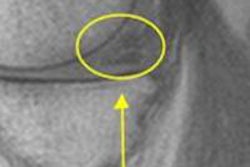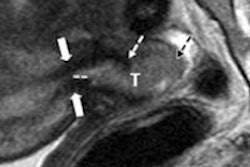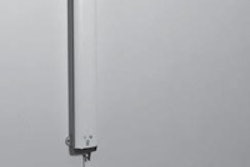MRI may be considered mature, but the modality is as relevant as ever as a more than viable alternative in the campaign to reduce radiation exposure to patients, and in its collaboration with PET to provide greater insights into neurology, cardiology, and oncology.
In fact, one way to learn more about PET/MRI and its potential is to attend the special course on Thursday, December 5 (SPSH50, 7:15 a.m.-8:15 a.m., Room E350). Dr. Ciprian Catana, PhD, from Massachusetts General Hospital joins Dr. Kathryn Fowler from the Washington University School of Medicine, and Martin Judenhofer, PhD, from the University of California, Davis to illustrate advanced body imaging applications for the hybrid modality and discuss the challenges of integrating PET/MRI into clinical workflow.
Needless to say, many imaging facilities are still learning about PET/MRI. On Tuesday, December 3, Bruce Hammer, PhD, from the University of Minnesota Center for Magnetic Resonance Research, participates in a special course on cardiac PET/MRI (RC403D, 4:30 p.m.-6:00 p.m., Room N228). Hammer will detail the resolution capabilities of MRI and PET as standalone and hybrid scanners.
During that same session, Dr. Pamela Woodard from the Washington University School of Medicine will take PET/MRI a step further to look at its application in cardiology and the workflow implications of a cardiac PET/MRI myocardial perfusion exam.
MRI safety
MRI safety is a daily concern at all radiology departments and imaging facilities. On Tuesday, December 3, there are two sessions to help radiologists and other staff take charge in developing ways to improve conditions in the MRI environment and avoid unnecessary adverse events.
Quality Improvements: Safety at Work (MSQI31, 8:30 a.m.-10:00 a.m., Room S406B) leads with Dr. Lane Donnelly, chief medical officer at Nemours Children's Hospital, discussing how a daily management system can identify safety issues and help staff implement solutions to improve patient safety.
Dr. Olga Brook from Beth Israel Deaconess Medical Center follows with the safety risks MRI staff face in the work environment, and how implementing certain strategies can mitigate and prevent avoidable accidents. Dr. Ronald Eisenberg, also from Beth Israel Deaconess, ends the session by discussing risk management so radiologists can better protect patients, imaging department staff, and themselves.
MRI safety advice continues later in the day on Tuesday, when three MRI safety aficionados host a refresher course on the topic (RC429, 4:30 p.m.-6:00 p.m., Room E353C). Frank Shellock, PhD, from the University of Southern California begins the session with information on implants and devices, and how best to manage patients with implanted devices, such as pacemakers.
William Faulkner, an MRI consultant with William Faulkner & Associates, takes an MRI technologist's perspective on how to properly screen patients for MRI procedures. The session concludes with Dr. Patrick Colletti from USC Radiology Associates, who will cover reprogramming for patients with MR-conditional pacemakers and optimizing third-party coverage for these MRI services.
If you would like to learn more about the quality of MRI contrast agents and how to use them safely, schedule some time on Wednesday, December 3, to attend a special course hosted by Dr. Thomas Grist from the University of Wisconsin School of Medicine and Public Health, Dr. Jeffrey Weinreb from the Yale School of Medicine, and Dr. Martin Prince, PhD, from Cornell and Columbia Universities (SPSC40, 7:15 a.m.-8:15 a.m., Room E350). The trio will discuss gadolinium-based contrast agents in patients with renal failure, the risk of nephrogenic systemic fibrosis (NSF), and the risks and benefits of using nongadolinium-based contrast agents.
Your preview of some of the more novel and noteworthy scientific presentations on the MRI schedule for this year's annual meeting of RSNA starts below. You can also click here to view the entire meeting program for RSNA 2013.



















